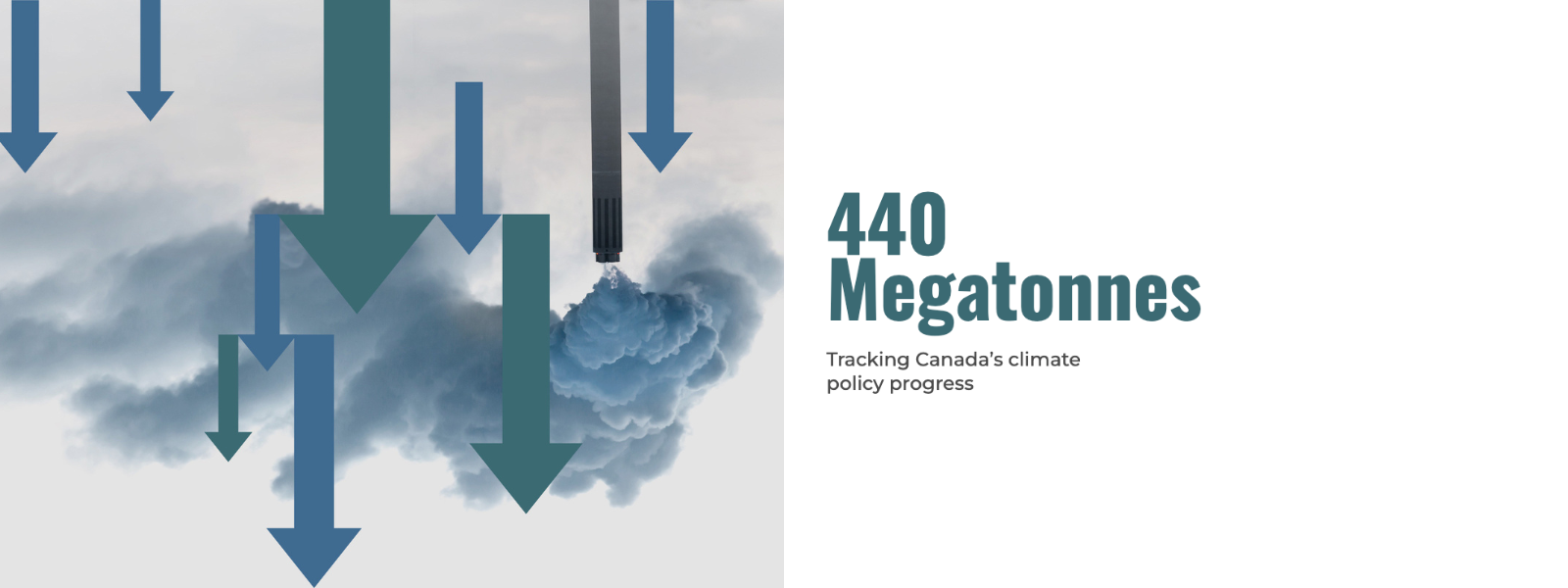What gets measured gets managed.
Despite widespread skepticism about how productive the latest round of global climate talks underway at COP27 in Egypt will be, there is no question that we are in a decade of rapidly accelerating climate action. Reducing emissions while pursuing competitiveness, energy security, low-carbon growth, and prosperity remains top-of-mind for government and corporate leaders in Canada and around the world.
Tracking Canada’s progress in reducing emissions—and identifying opportunities to correct course—is necessary for an informed public conversation on climate action and effective policy implementation. But when it comes to measuring the impact of climate policy across Canada, good data has been surprisingly hard to come by—until now.
That’s why the Canadian Climate Institute has launched a new resource called 440 Megatonnes, a one-stop data shop to help assess Canada’s progress toward its 2030 and 2050 climate goals. The project name refers to Canada’s commitment to reduce emissions by at least 40 per cent below 2005 levels by the end of the decade—or to no more than 440 Mt a year in 2030—en route to net zero by 2050.
The data we make available will continue to expand. As of its launch this week, the 440 Megatonnes website features weekly expert insights, searchable databases, and downloadable open-source data showing where Canada is on track to meet its 2030 target and where there are opportunities to course correct. It tracks information about national, and sectoral emissions, government policies and spending, and corporate emissions-reduction commitments.
You can explore the following features now:
- An interactive dashboard mapping historical emissions trends to projections under the Emissions Reduction Plan and Canada’s net zero pathways.
- A comprehensive database of over 400 federal, provincial, and territorial policies, to help users understand what government actions and spending have been introduced to reach 440 Mt.
- An extensive database tracking climate commitments for the top 60 companies on the TSX, including details about risk disclosure, scenario analysis, and governance.
- Calculations of carbon intensities for Scope 1, 2, and 3 emissions for 60 economic sectors and 51 consumption categories.
- Exclusive modelling data and scenario analysis from our 2021 report, Canada’s Net Zero Future, to add clarity about Canada’s potential pathways to net zero by 2050.
You can also find the first two installments of our weekly expert insights—including new analysis showing that, without new regulations, oil and gas emissions are set to overshoot Canada’s 2030 climate goal. Sign up for our 440 Megatonnes newsletter to get timely, data-driven expert analysis of the latest climate policy progress delivered weekly to your inbox. You can also follow 440 Megatonnes on Twitter, and join us on Thursday, November 10, 2022 at 1 pm ET for an in-depth look at this new interactive resource.





